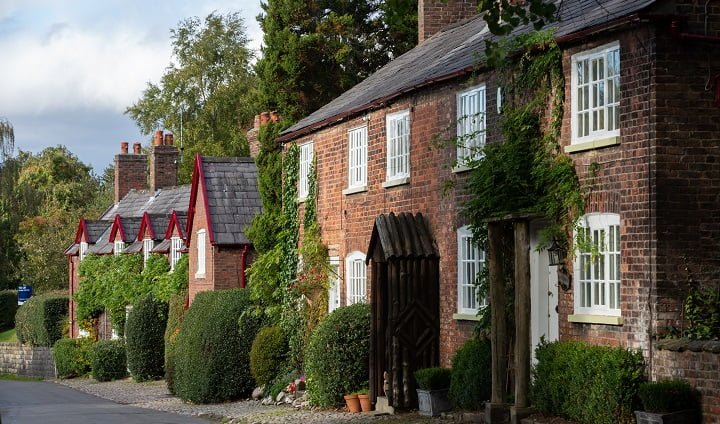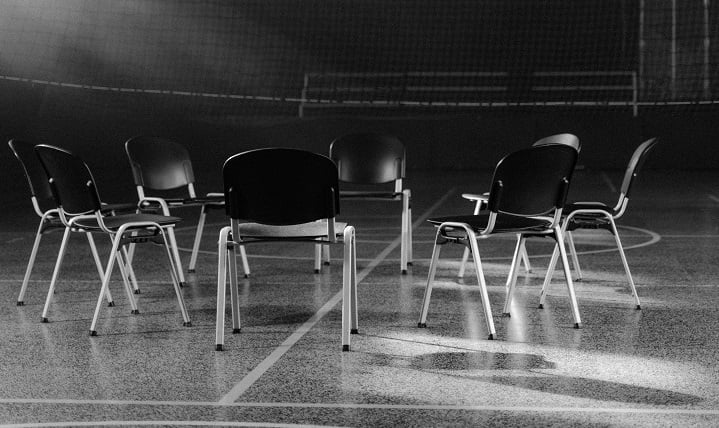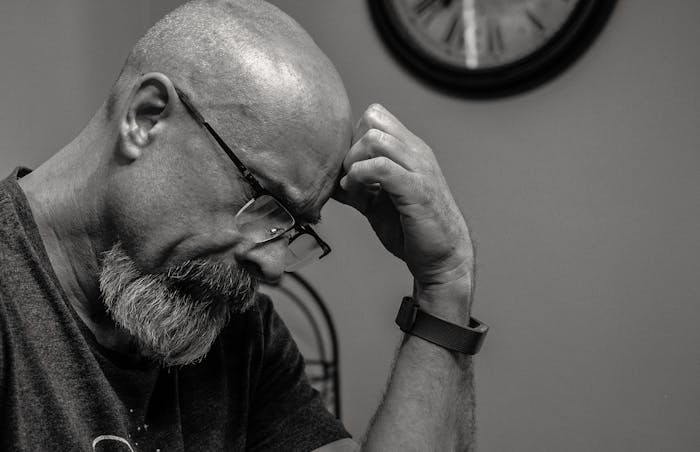Drug & Alcohol Rehab Bolton & Near Bolton
Quick Links for Drug Rehab & Alcohol Rehab in Bolton and near Bolton
- Dual diagnosis at drug rehab & alcohol rehab in Bolton
- What you gain from attending a private drug & alcohol rehab in Bolton
- Alternatives to drug rehab & alcohol rehab in Bolton
- How much will drug rehab & alcohol rehab in Bolton cost?
- Can I choose how long I go to drug rehab & alcohol rehab in Bolton?
- Are therapies essential at drug rehab & alcohol rehab to recover from addiction in Bolton?
- What happens when you leave drug rehab & alcohol rehab in Bolton?
- Contacting Rehab Recovery for drug & alcohol rehab in Bolton
Addiction affects people all over the world.
When people abuse drugs and/or alcohol they risk significant damage to their body and mind, not to mention developing an addiction that only a drug and alcohol rehab can help beat.
In Bolton in 2019, 33 people died due to drug complications [1] and 6,680 people had to go to the hospital because of conditions linked to alcohol. [2]
Sadly, the fact that this disease has such a stigma linked to it means that many people are not getting the medical and psychological rehab treatment that they require.
In order for people to heal, they need rehab therapists to work with them to restructure the neural pathways in the brain that have been damaged by abuse
Physical attention is necessary too. Substances affect hormonal and chemical balances, as well as fill the body with toxins, which need to be reduced and removed carefully during drug and alcohol rehab treatment.
For a person to recover, attention must be given to all areas of their health and well-being whilst at drug and alcohol rehab.
This approach will help every rehab patient to beat addiction once and for all, giving them the best chance of overcoming their dependency issues and avoiding relapse after rehab treatment has ended.
Start your recovery journey at a drug and alcohol rehab in Bolton today by calling our expert team on 0800 088 66 86
Dual diagnosis at drug rehab & alcohol rehab in Bolton

Outpatient therapy at a drug rehab and alcohol rehab in Bolton and near Bolton
According to NESARC data, [3] 28.6% of people with a current alcohol use disorder diagnosis had at least one personality disorder like bipolar disorder.
This is sadly not surprising as mental health issues often go hand-in-hand with addiction and require additional consideration during rehab treatment.
- Borderline personality disorder
- Schizophrenia
- Obsessive Compulsive Disorder (OCD)
- Depression
- Anxiety disorders
- Post-Traumatic Stress Disorder (PTSD)
- Eating disorders
- Bipolar Disorder
This can make it much more difficult for a person to function, especially with the added complications brought about by drug and alcohol addiction, and can also further complicate rehab treatment in Bolton.
Your chosen drug and alcohol rehab can assess your well-being to see if you are showing any signs of an undiagnosed mental health condition as part of an initial psychiatric assessment.
If it becomes clear that you have a mental health problem as well as an addiction, then you’ll be given a dual diagnosis. This means that while you’re at drug and alcohol rehab, you’ll be treated by professionals for both conditions.
This is because when people have mental health issues, they quite often turn to drugs and alcohol in order to manage the symptoms.
The longer people do this, the more likely they are to develop an addiction and need help from a drug and alcohol rehab in Bolton.
Many organisations across the UK also offer free mental health support outside of the drug and alcohol rehab structure, whether you are also suffering from addiction or not.
Some of the most useful include Mind UK, Young Minds, Rethink Mental Illness, Samaritans and Papyrus.
To learn how a drug and alcohol rehab in Bolton will work to support your mental heath, call our team today on 0800 088 66 86
What you gain from attending a private drug & alcohol rehab in Bolton and near Bolton

Addiction is not considered a ‘choice’ or ‘moral failing’ on behalf of the addiction sufferer – it is a disease and rehab is all about treating the disease of addiction.
- 24-hour care in drug rehab and alcohol rehab from a team of clinical staff who are trained to keep you safe and ensure your well-being.
- A substance-free zone in drug and alcohol rehab that focuses attention on healing and recovery.
- A team of experts in drug and alcohol addiction who understand the best methods for drug rehab and alcohol rehab to approach your treatment.
- Top-quality rehab treatments including evidence-based psychological rehab treatments, which have proven to be extremely effective in treating addiction across the world.
- A supervised detox in drug rehab and alcohol rehab by clinical staff to ensure that patients safely come off alcohol, opiates and other physically addictive substances.
- Supportive group work treatment sessions after drug rehab and alcohol rehab has concluded, such as 12-step and SMART groups.
- A welcoming environment at drug rehab and alcohol rehab where you’ll be fully catered for with delicious food.
- A wide range of therapies and holistic activities to enhance the start of your drug rehab or alcohol rehab recovery journey.
Private vs NHS drug & alcohol rehab in Bolton

There have been many government budget cuts in the field of addiction over recent years. This means that council-funded addiction treatment and rehab options have been affected across the UK, including in Bolton.
It is still provided in a lot of towns, but the amount of input offered isn’t as much as what you get at private rehab clinics.
For example, nearly two-thirds (64%) of people have a wait of more than four weeks for NHS therapy so going private for drug and alcohol rehab or mental health-related services is normally recommended.
Private rehab clinics offer a total approach. This includes therapies and activities to heal the mind and body in equal measure.
Council-funded drug and alcohol rehab services in Bolton offer weekly group sessions and the occasional individual therapy session, along with supportive input from drug and alcohol workers.
Many free and NHS-run rehab services [4] and the local NHS Foundation Trust in Bolton [5] offer alternative drug and alcohol rehab services, including:
1. Turning Point Bolton – Smithfield Detox Clinic
Address: Thompson St, Manchester M4 5FY
Telephone: 01618 278 570
Website: https://www.turning-point.co.uk/services/drug-and-alcohol-support/detoxification.html
2. Change Grow Live | Adult and Young People’s Drug and Alcohol Service, near Bolton
Address: 43A Carnarvon St, Cheetham Hill, Manchester M3 1EZ
Telephone: 01618 236 306
3. Priory Hospital Altrincham, near Bolton
Address: Priory Hospital Altrincham, Rappax Road, Hale, Altrincham, WA15 0NX
Telephone: 08008 606 267
Website: https://www.priorygroup.com/nhs
4. BAND Family Action
Address: Unit 9c, Market Place, Knowsley St, Bolton, BL1 2AL
Telephone: 01204 380 643
Website: https://www.family-action.org.uk/
You can also reach out to a number of remote services for addiction information and rehab advice, such as the National Institute for Health and Care Excellence (NICE), Turning Point, We Are With You, Change Grow Live and the National Association for Children of Alcoholics.
These drug and alcohol rehab support services can be really beneficial for people with mild substance issues.
For those living with moderate to severe addictions, a stay at a private drug and alcohol rehab clinic offers the ultimate place to build recovery.
Whether you need the health of a private or public rehab in Bolton, call our team today on 0800 088 66 86
Alternatives to drug & alcohol rehab in Bolton or near Bolton

Group therapy chairs at a drug rehab and alcohol rehab in Bolton
Professionally supported drug and alcohol rehab is one of the best ways to recover from addiction, but it isn’t for everyone.
Some people who use drugs and alcohol simply won’t be eligible for rehab, or will have responsibilities that prevent them fro taking the time necessary to attend rehab.
- A home detox supervised remotely. This is for those wanting to end a physical dependency without having to enter drug rehab and alcohol rehab in Bolton or near Bolton.
- Accessing outpatient rehab services at a private or council-funded drug rehab and alcohol rehab service in Bolton. This might involve one-to-one (individual therapy), and/or group sessions.
- Alcoholics Anonymous, [6] Narcotics Anonymous [7] and Cocaine Anonymous [8] groups offer a consistent weekly place of supportive networking in Bolton, which can provide peer support similar to that received at drug and alcohol rehab.
- SMART Recovery [9] is a support group programme available both online and in-person, allowing you to continue your drug rehab and alcohol rehab addiction treatment wherever you are, whether in Bolton or elsewhere.
- Family therapy organisations and support groups like Al-Anon [10] run groups in Bolton and near Bolton for families in order to encourage healthy family dynamics during drug and alcohol addiction recovery journeys.
- Achieve Bolton Case Management And Clinical Treatment Service [11] – an NHS addiction support service a drug rehab and alcohol rehab advice group run in Bolton.
For further advice about alternatives to drug and alcohol rehab in Bolton, talk to our team on 0800 088 66 86
How much will drug rehab & alcohol rehab in Bolton cost?

People working together at a drug rehab and alcohol rehab in Bolton
To give you a rough idea, though, you can expect to pay approximately these prices for the following rehab treatments:
10-day detox at rehab in Bolton or near Bolton
For a multi-occupancy rehab room, the cost is around £2,000-4,000.
A single rehab room just for you is typically about £3,000-£6,000.
It’s recommended that people remain at rehab after detoxing in order to benefit from psychological therapies too.
Addiction needs to be treated from multiple angles for rehab recovery to have higher rates of success.
28 days at rehab
The majority of people entering a drug and alcohol rehab in Bolton will stay for 28 days as this allows a full programme of treatment to take place.
All therapies, medications, and activities can take place in a relaxed and immersive rehab environment.
A single rehab room is around £8,000-£12,000, whilst a multi-occupancy rehab room will be around £6,000.
A home detox
Medically supervised alcohol detox can take place at home in Bolton without going into a rehab centre.
A doctor will oversee it by making contact with the patient every day, similar to the monitoring provided at a residential drug and alcohol rehab in Bolton.
They’ll do this to ensure the person’s safety and before prescribing more medication. This will typically cost around £1,500.
Can I choose how long I go to drug rehab & alcohol rehab in Bolton?

Garden at a drug rehab and alcohol rehab in Bolton
There are advisable lengths of time for people to attend drug and alcohol rehab, usually either 10 or 28 days as mentioned above.
The reason for this is because of how rehab programmes are structured.
The professional team has processes to lead you through which often take optimum amounts of time for healing to begin.
You can discuss the specifics with the team at your chosen drug and alcohol rehab in Bolton.
Whilst long-term drug and alcohol rehab is possible in extreme cases, the most common length of time they’ll stay is around 28 days.
Begin the recovery process at a drug and alcohol rehab in Bolton by calling us today on 0800 088 66 86
Cocaine rehab at drug & alcohol rehab in Bolton

Couple supporting each other at a drug rehab and alcohol rehab in Bolton
Many people have developed cocaine problems as a result of how widespread its use is in the UK, putting a significant strain on rehab services.
For many, cocaine abuse will also lead to crack cocaine use.
These substances, especially when combined with alcohol, can do serious damage to the body and further complicate rehab treatment.
The best way to cure cocaine addiction and cocaine dependence is at a rehab centre, where you can have access to a variety of therapies and treatments while also getting a break from the demands of daily life.
Therapies for cocaine addiction at drug and alcohol rehab in Bolton focus on understanding the causes of addiction and tackling them directly. Time is spent on how to change thought patterns and behaviours.
Along with this, group sessions offer alternative tricks and tips to stop using and stay cocaine-free after rehab ends.
Beat your addiction to cocaine with the help of a drug and alcohol rehab in Bolton – call us today on 0800 088 66 86
Heroin rehab at drug & alcohol rehab in Bolton

Group celebrating at a drug rehab and alcohol rehab in Bolton or near Bolton
It is extremely important that people suffering from a heroin addiction receive a controlled and monitored physical heroin detox in a safe rehab environment in Bolton, as well as receiving extensive psychotherapies.
This is because heroin exerts a powerful effect on both the physical body and the mind, both of which need proper treatment from a drug and alcohol rehab to overcome.
The heroin detox period will begin as soon as admission to rehab has concluded.
A doctor or qualified rehab physician will prescribe a medication like Subutex so that heroin withdrawal symptoms are kept to a minimum.
This medication is prescribed in a tapered manner and typically lasts between 7 and 10 days at rehab.
After this, rehab residents will begin various therapies to tackle the root cause of their heroin use.
This personalised programme will allow the patient to reflect on what triggers they suffer from and how to change their lifestyle and behaviour to ensure that they stay away from heroin after rehab.
Beat your addiction to heroin with the help of a drug and alcohol rehab in Bolton – call us today on 0800 088 66 86
Cannabis rehab at drug & alcohol rehab in Bolton

Walking in a woodland during outdoor therapy at a drug rehab and alcohol rehab in Bolton
It’s very common for people to become addicted to cannabis, despite the various myths around cannabis use being harmless.
While it is not a physically addictive substance, cannabis use disorder can take a hold over user’s lives to such an extent that help from a drug and alcohol rehab is needed.
What many do not realise is that THC-heavy strains of cannabis can cause the following:
- Anxiety
- Depression
- Mood swings (especially when craving)
- Reduction in motivation
- Sleep disturbances
- Psychosis
Furthermore, recent studies indicate that regular cannabis use [12] can have a significant impact on psychosocial development and exacerbate a wide variety of mental health issues, all of which make cannabis addiction a serious condition in need of proper drug and alcohol rehab treatment.
Rehab therapies identify ways to handle cravings as well as treat any subsequent mental health issues.
There is also significant time and focus placed on rehab activities that promote self-awareness and inner peace.
Drug and alcohol rehab staff support residents in identifying important lifestyle changes to maintain future abstinence once drug and alcohol rehab in Bolton has concluded.
While medications like Selective Serotonin Reuptake Inhibitors (SSRIs) can help ease anxiety symptoms and make rehab easier, recovery from cannabis and all its subsequent impacts will ultimately be a case of psychological growth and personal motivation guided by expert drug and alcohol rehab help.
Beat your addiction to cannabis with the help of a drug and alcohol rehab in Bolton – call us today on 0800 088 66 86
Treatment for alcohol addiction at drug rehab & alcohol rehab in Bolton

Man holding his head at a drug and alcohol rehab in Bolton or near Bolton
Alcohol addiction occurs when drinking starts to dominate your thoughts, leaving you desiring to drink more and unable to cut back without drug and alcohol rehab help.
Some people may end up binge drinking as a result of this, while others may end up consuming lower amounts more often.
Either way, alcohol addiction is an extremely dangerous issue that required effective rehab support to treat.
Alcohol addiction is common across the UK and worldwide, making up an equally large portion of rehab treatment services, including in Bolton.
Heavy drinking is usually determined by the NHS [13] as drinking more than 14 units per week – a rate of binge drinking that can cause serious issues and require extensive drug rehab treatment in Bolton.
Drinking alcohol regularly can have many negative effects on your health, such as:
- Difficulty walking
- Blurred vision
- Slurred speech
- Slowed reaction times
- Impaired memory
When you suddenly stop drinking after drinking alcohol for a prolonged period of time, your body will enter a potentially life-threatening process of alcohol withdrawal.
If left to get worse, you risk developing health conditions such as Wernicke Encephalopathy, Delirium Tremens and even seizures, all of which require immediate medical and rehab support to address.
An alcohol detox held in a rehab centre is the best way to safely eliminate alcohol from your system.
Librium is a widely used drug that helps lessen the effects of alcohol withdrawal symptoms, as are a range of other prescription medications that can be accessed and regulated at drug and alcohol rehab.
Once detox has been completed, therapy will be the next step of heroin rehab treatment in Bolton, allowing you to tackle the root causes of your alcoholism.
Thanks to a noticeably high success rate, [14] rehab therapy following detox is highly recommended for long-term addiction recovery.
Leave alcohol addiction behind for good with the help of a drug and alcohol rehab in Bolton by calling us today 0800 088 66 86
Therapies used at drug rehab & alcohol rehab in Bolton

Group support session for alcohol addiction at a drug rehab and alcohol rehab in Bolton
Effective recovery from addiction requires psychological input as well as holistic rehab support.
A drug and alcohol rehab in Bolton will be the best place for receiving both types of treatment.
When every angle of an addiction is addressed, you are much more likely to heal in an effective way that lasts beyond the limits of rehab.
The National Institute for Health and Care Excellence [15] lays out quality guidelines to ensure all rehab healthcare treatments are regulated and able to offer positive results.
- Cognitive Behavioural Therapy (CBT)
- Dialectical Behaviour Therapy (DBT)
- Motivational Interviewing (MI)
- Motivational Enhancement Therapy (MET)
- Brief Interventions
- Holistic and Alternative Therapies (ear acupuncture, mindfulness, art therapy, drama therapy, music therapy, equine therapy, etc.)
- Group psychotherapy
- Eye Movement Desensitization and Reprocessing (EMDR)
- Rational Emotive Behaviour Therapy (REBT)
- Acceptance and Commitment Therapy (ACT)
Get access to any of these excellent therapies through a drug and alcohol rehab in Bolton by calling us today on 0800 088 66 86
What happens when you leave drug rehab & alcohol rehab in Bolton?

Patient writing in a journal about alcohol addiction at a drug and alcohol rehab in Bolton or near Bolton
At drug and alcohol rehab in Bolton, you’ll plan with staff how to reintegrate into regular life after rehab in a way that will keep you sober.
This requires a solid and reliable drug and alcohol rehab aftercare plan.
It is essential that you speak openly and honestly to rehab staff about what your usual triggers are so that this plan can accommodate for it.
Your rehab aftercare plan will also outline what activities you can make a regular part of your life to support healthy living, which could possibly include a change of living environment (removing all alcohol from your home, for example) or an adaptation to your usual social circle or activities in Bolton.
Your new living environment and relationships should all work to support your sobriety, allowing you to stay away from excessive relapse triggers and ensuring that you know how to limit the damage in case relapse does occur, avoiding the need for further drug and alcohol rehab treatment in Bolton.
You may also be directed towards several mutual support groups in Bolton as previously detailed, such as Alcoholics Anonymous, Narcotics Anonymous and SMART Recovery, which can provide the same sense of peer support that helps to make residential rehab so effective.
Pair your stay at a drug and alcohol rehab in Bolton with an equally effective aftercare plan by calling us on 0800 088 66 86
Contacting Rehab Recovery for drug & alcohol rehab in Bolton

Person typing on a phone at a drug and alcohol rehab in Bolton or near Bolton
For more information on detox and rehab options in Bolton, contact Rehab Recovery today on 0800 088 66 86.
When you reach out us, we shall discuss your addiction issues and outline a variety of suitable rehab treatment options available to you in Bolton.
This includes both private and statutory rehab services.
Every rehab in England and Wales that we work with is vetted by the Care Quality Commission (CQC), [16] to ensure that you can be confident in the quality of your drug and alcohol rehab treatment in Bolton.
Get help for addiction across Greater Manchester, including in Manchester, Wigan, Stockport, Salford, Oldham, Rochdale, Bury, Altrincham, Cheadle and Gatley, Stalybridge, Worsley, Middleton, Leigh, Ashton Under Lyne, Stretford, Hazel Grove and Bramhall, Urmston, Swinton and Pendlebury, Hyde, Eccles, Denton, Radcliffe and many others.
References for Drug Rehab & Alcohol Rehab in Bolton and Near Bolton
[2] https://www.theboltonnews.co.uk/news/18220461.alcohol-abuse-putting-people-bolton-hospital/
[3] https://iv.iiarjournals.org/content/24/5/761
[4] https://www.nhs.uk/live-well/addiction-support/drug-addiction-getting-help/
[5] https://www.boltonft.nhs.uk/
[6] https://www.alcoholics-anonymous.org.uk/find-a-meeting/
[7] https://meetings.ukna.org/meeting/search
[8] https://www.cocaineanonymous.org.uk/
[9] https://uk.meetings.smartrecovery.org/meetings/
[10] https://al-anonuk.org.uk/
[12] https://www.thelancet.com/journals/lancet/article/PIIS0140-6736(09)61037-0/fulltext?cc=y=
[13] https://www.nhs.uk/live-well/alcohol-advice/the-risks-of-drinking-too-much/
[14] https://gpsych.bmj.com/content/32/5/e100087
[15] https://www.nice.org.uk/guidance/health-protection/drug-misuse


